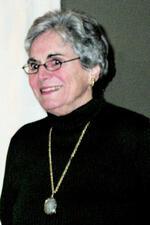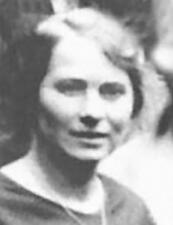
Sabina Spielrein
Phyllis Spira
As a young dancer at the Royal Ballet School in London, Phyllis Spira was on the brink of a successful career abroad, but in 1965 she returned to her home in South Africa and became the country's prima ballerina. Spira was awarded the Nederburg Prize for ballet in 1972 and 1979. Her most notable achievement was perhaps leading “Dance For All,” a program to provide disadvantaged students opportunities to dance.
Miriam Spira-Luria
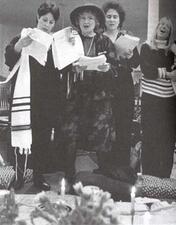
Spirituality in the United States
Jewish women’s spirituality developed historically within the confines of a patriarchal tradition. Over time, feminists have developed rituals and created spaces that honor the unique experiences of women.
Toba Spitzer
Edith I. Spivack
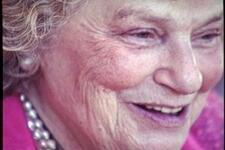
Viola Spolin
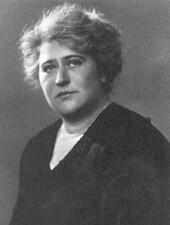
Constance Amberg Sporborg
Constance Amberg Sporborg was a career clubwoman who dedicated her life to the advancement of women’s rights, immigrant settlement, international organizations, and world peace. Working in New York City in the early twentieth century, Sporborg aided both Jews and gentiles.
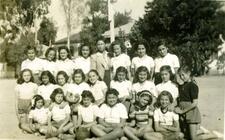
Sport in Israel: Yishuv to the Early 21st Century
Women have been involved in sports in Israel since the Yishuv period, participating as teams, as individuals, and as coaches. Though more women are now participating in competitive sports, the field still reflects a masculine culture of power struggle and a desire to defeat the enemy. More recent political efforts in Israel have attempted to achieve women's equality in athletics.
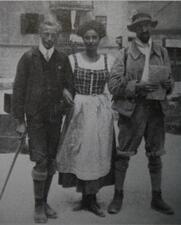
Sports in Austria 1918-1938
This article gives an overview of the participation of Jewish women in Austrian sport from the Habsburg monarchy to the present day. Drawing on selected biographies of sportswomen and functionaries, and with a regional focus on the capital city of Vienna, it explores the double relationship between female emancipation and Jewish self-assertion in an environment that had long been male-dominated and anti-Semitic.
Sports in Germany: 1898-1938
Women’s participation in Jewish gymnastics clubs increased significantly during the first two decades of the twentieth century. The Jewish sports movement grew during the 1920s, allowing women to participate in cross-country running, swimming, and tennis. After German sports clubs annulled Jewish membership in 1933, women poured into these Jewish sports groups.
Sports in the United States
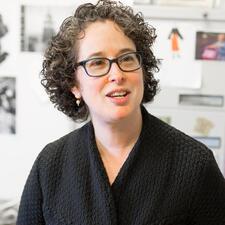
Mychal Springer
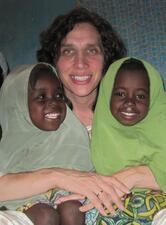
Laura Stachel

Susan Stamberg
Susan Stamberg, the first full-time woman anchor of a national nightly news broadcast, played an important role in making National Public Radio (NPR) a news organization that offered pioneering opportunities to women journalists. Her half-century career at NPR opened the way for other women by demonstrating competence, originality, and compassion in reporting and interviewing.
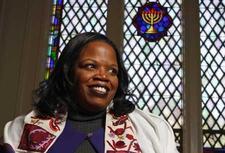
Alysa Stanton
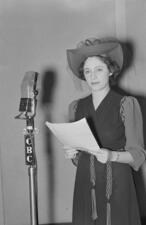
Ethel Stark
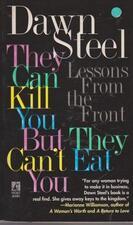
Dawn Steel
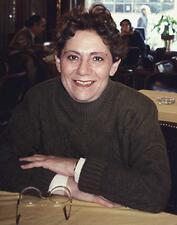
Alicia Steimberg
Fiction writer Alicia Steimberg (Buenos Aires, Argentina, 1933-2012) garnered important literary prizes. Her work as a translator was awarded by the Konex Foundation and she served the government as Director of Books of the Secretariat of Culture.
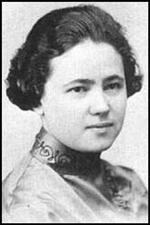
Mollie Steimer
Mollie Steimer earned nationwide attention for her refusal to compromise her anarchist beliefs during the widely publicized 1918 trial in which she was sentenced to prison under the Sedition Act. Later deported to Russia and then to Germany, Steimer continued her anarchist activities throughout her life.
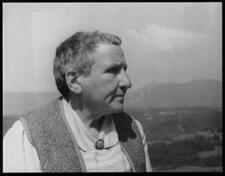
Gertrude Stein
Hannah Stein
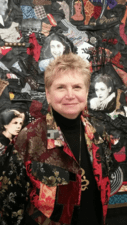
Linda Stein
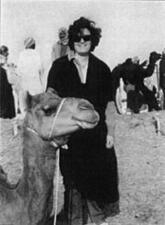
Lisa Stein
